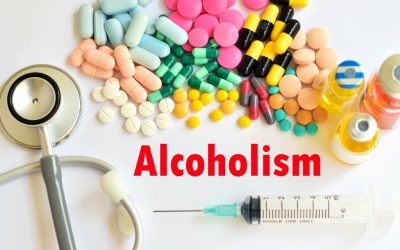Because of the potential for a serious medical emergency occurring during detox and withdrawal, it is usually recommended that the individual have a medically monitored detox. This type of detox will provide the appropriate medical attention should alcohol withdrawal and blood pressure increases team up to cause a serious medical condition. Other research from 2019 found that there was a significant link between moderate alcohol consumption and a risk of hypertension. Low doses of alcohol, less than 14 grams in six hours, typically do not significantly alter blood pressure but can increase heart rate, which might pose issues for some individuals. Conversely, drinking larger quantities—more than 30 grams at once—initially causes a small decrease in blood pressure, but this effect is short-lived.
What are the effects of alcohol on blood pressure levels?
The condition just doesn’t get talked about much living in the shadows of high blood pressure (hypertension). People with high blood pressure should seriously consider avoiding alcohol completely or limiting consumption to the lowest possible amounts under medical supervision. Without alcohol, your stress hormone levels stabilize, your weight management becomes easier, and your blood pressure medications work more effectively. Many people see a reduction of 5-10 mmHg in their systolic blood pressure within the first month of abstaining from alcohol.

Your addiction does not have to define who you are.
- Understanding how alcohol influences blood pressure is crucial for heart health.
- If the arteries that supply blood and oxygen to the brain burst or become blocked, it can cause a stroke.
- They found, in a study on healthy young adults; the blood vessels stay relaxed (not constrict) effectively after drinking leads to low blood pressure responsible for fainting.
But if that first number consistently falls below 90, you may have low blood pressure, says Dr. Laffin. Low blood pressure, or hypotension, is typically defined as anything below 90/60 mmHg. It’s also a more common issue than you might think, particularly as people age.
Is Alcohol Ever Beneficial to Your Health?

We did not see any significant change in blood pressure or heart rate after that, but the evidence was limited. People in heart failure or people on beta-blockers (used to treat hypertension) should not drink. If you have an abnormal heart rhythm, talk with your healthcare provider before drinking. Alcohol is a diuretic, meaning it increases urine output, which can lead to dehydration and disrupt electrolyte levels, both of which can negatively impact blood pressure control. Dehydration and electrolyte imbalances can cause blood vessels to narrow and the heart to work harder, further contributing to spikes in blood pressure. Reduced blood volume decreases the amount of blood pumped by the heart and lowers blood pressure.
- AddictionResource aims to present the most accurate, trustworthy, and up-to-date medical content to our readers.
- When your body is low on fluids, your body tries to correct the problem by producing vasopressin.
- A person can speak with a qualified healthcare professional if they find it difficult to reduce their alcohol intake.
- In this article, you’ll discover the connection between alcohol consumption and high blood pressure.
Life at VCU

For instance, someone with high blood pressure may be at an increased risk of negative side effects due to drinking alcohol. The type of alcohol you drink—whether beer, wine, or spirits—does not significantly impact how alcohol raises blood pressure. While red wine contains antioxidants like resveratrol that may have heart-health benefits, drinking too much wine still increases the risk of high blood pressure and cardiovascular problems. Alcohol consumption impacts blood pressure in various ways depending does alcohol cause low blood pressure on the amount and pattern of drinking. During this initial phase, blood pressure might fall slightly; however, after roughly 13 hours, it tends to rebound and increase. If you drink large amounts of alcohol daily, consider talking with a healthcare professional about how to taper off your alcohol intake to prevent symptoms of alcohol withdrawal syndrome.
This vasodilation reduces peripheral vascular resistance and can lower blood pressure. A study published in The American Journal of Clinical Nutrition showed that heavy alcohol consumption contributes to an increase in body mass index and waist circumference. When a person becomes overweight, they are more likely to have an increase in blood pressure.
He has a nursing and https://www.planetcourier.net/alcohol-and-your-health-risks-benefits-and/ business/technology degrees from The Johns Hopkins University. As a result, caffeine doesn’t have a long-term effect on blood pressure and is not linked with a higher risk of high blood pressure, also called hypertension. Caffeine may cause a brief rise in your blood pressure, even if you don’t have high blood pressure. This short-term spike in blood pressure happens mainly in people who don’t drink caffeine often, rather than in those who do.
A 2021 review found that in women, drinking even a moderate amount of alcohol can increase the risk of hypertension. More research is needed on the specific effects of short-term alcohol use on blood pressure in women and people with other health conditions. But a 2021 review suggests that alcohol may have a greater effect on blood pressure in women than in men and a greater effect in Black people than in white or Asian people. Our writers and reviewers are experienced professionals in medicine, addiction treatment, and healthcare. AddictionResource fact-checks all the information before publishing and uses only credible and trusted sources when citing any medical data.
Who Is Most at Risk of Alcohol-Induced Hypertension?
In the short term, having more than three drinks in one sitting can cause a temporary spike in blood pressure. This immediate effect occurs because alcohol stimulates the nervous system and narrows blood vessels, making the heart work harder. Mechanistically, alcohol acts on several pathways to elevate blood pressure. It stimulates the sympathetic nervous system, increases the production of Alcoholics Anonymous stress hormones like cortisol, and causes blood vessel constriction.
